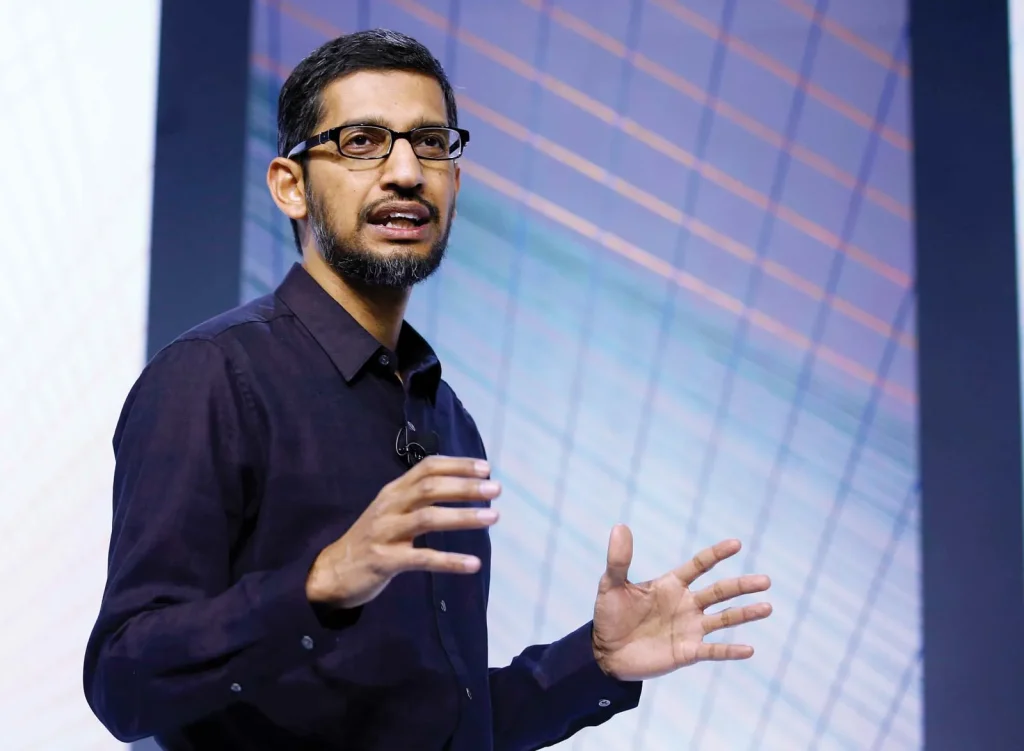Google CEO Sundar Pichai unveiled a groundbreaking initiative at the UN Summit of the Future, announcing a $120 million Global AI Opportunity Fund aimed at democratizing artificial intelligence education and training worldwide. Speaking on Saturday, Pichai described AI as “the most transformative technology yet,” emphasizing its potential to revolutionize various aspects of society and support sustainable development goals.
In his address, Pichai outlined four key areas where AI could make significant contributions:
- Language accessibility: AI can help people access information in their native languages, breaking down communication barriers and fostering global understanding.
- Scientific advancement: By accelerating scientific discovery, AI has the potential to solve complex problems and drive innovation across multiple fields.
- Disaster preparedness: AI-powered systems can provide early warnings and improved tracking for climate-related disasters, enhancing global resilience.
- Economic growth: The technology is poised to fuel economic progress, creating new opportunities and industries.

While highlighting these opportunities, Pichai also acknowledged the potential risks associated with AI technology, specifically mentioning the challenge of deepfakes. However, he notably did not address AI’s environmental impact, a topic of growing concern among climate activists and researchers.
Central to Pichai’s vision is the prevention of a global “AI divide” – a situation where advanced AI capabilities are concentrated in the hands of a few, leaving many countries and communities behind. To combat this potential disparity, Google’s newly announced fund will partner with local nonprofits and non-governmental organizations (NGOs) to make AI education and training accessible to communities worldwide.
The initiative reflects a growing awareness in the tech industry of the need to ensure that AI development and deployment are inclusive and beneficial to all. By focusing on education and training, Google aims to empower individuals and communities with the skills needed to participate in and benefit from the AI revolution.
Pichai also addressed the regulatory landscape surrounding AI, calling for “smart product regulation that mitigates harms and resists national protectionist impulses.” He warned that poorly designed regulations could exacerbate the AI divide and limit the technology’s benefits. This statement underscores the delicate balance policymakers must strike between protecting public interests and fostering innovation.
The Google CEO’s emphasis on collaboration with local organizations highlights a recognition that effective AI education must be tailored to diverse cultural contexts and local needs. This approach may help ensure that AI development reflects a wider range of perspectives and addresses a broader spectrum of global challenges.
However, some critics may argue that while education initiatives are valuable, they do not address more fundamental concerns about AI’s societal impact, such as job displacement or privacy issues. Additionally, the absence of discussion on AI’s environmental footprint in Pichai’s speech may raise questions about the tech industry’s commitment to addressing the full scope of AI’s implications.
Nevertheless, Google’s substantial financial commitment signals a significant step towards making AI more accessible and inclusive. The $120 million fund represents not just an investment in education but also in the future of global technological development.

As AI continues to evolve and integrate into various aspects of life, initiatives like Google’s Global AI Opportunity Fund may play a crucial role in shaping a more equitable technological landscape. By empowering communities with knowledge and skills related to AI, Google aims to ensure that the benefits of this transformative technology are widely distributed.
The announcement at the UN Summit of the Future places AI education within the broader context of global development goals, highlighting the interconnectedness of technological advancement and social progress. As world leaders and tech giants grapple with the implications of AI, Pichai’s vision presents a proactive approach to navigating the challenges and opportunities presented by this rapidly evolving field.
Copyright©dhaka.ai
tags: Artificial Intelligence, Ai, Dhaka Ai, Ai In Bangladesh, Ai In Dhaka, Future of AI, Artificial Intelligence in Bangladesh



